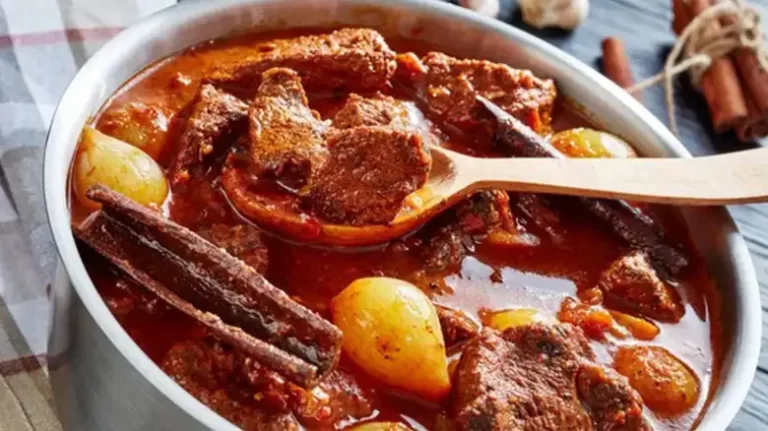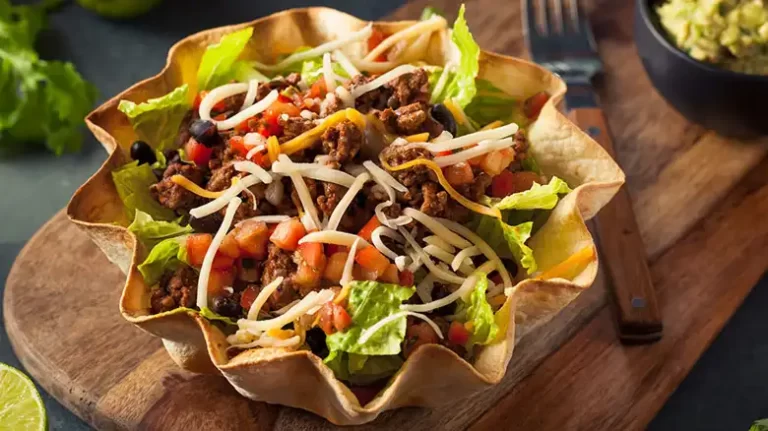What Happens if You Eat Solid Food After Gastric Sleeve
Gastric Sleeve surgery, a life-altering procedure designed to aid weight loss and enhance overall health, necessitates a meticulous dietary approach in the post-operative phase.
This article delves into the intricacies of what transpires when one prematurely introduces solid food into their diet after a Gastric Sleeve surgery, the risks and complications associated with such a decision, the signs that signify readiness for solid foods, and answers to common questions regarding this crucial journey.

Credit: www.moongastricsleeve.com
Gastric Sleeve Post-Surgery Diet Progression
Following Gastric Sleeve surgery, the journey towards sustainable weight loss and improved health begins with a meticulously structured dietary progression.
The Liquid Diet Phase
Duration: Typically, the initial one to two weeks post-surgery.
During this phase, patients transition from fasting immediately after surgery to a diet composed mainly of clear liquids.
These liquids may include water, clear broths, and sugar-free, non-carbonated beverages. The objective is to maintain hydration and provide essential nutrients while giving the stomach a chance to heal.
It’s a crucial phase to prevent dehydration and maintain nutrient intake while avoiding strain on the newly created gastric sleeve.
The Pureed Food Phase
Duration: Typically spans from weeks 2 to 4 post-surgery.
In the Pureed Food Phase, the transition from liquids to semi-solid foods begins. Patients consume foods that have a smooth, pudding-like consistency. This phase helps the stomach adapt to more substantial nourishment while still keeping the texture gentle on the healing tissues.
Suitable options during this phase often include baby food, pureed vegetables, and yogurt. It’s essential to chew food thoroughly and avoid any solid particles.
The Soft Food Phase
Duration: Generally falls between weeks 4 to 6 post-surgery.
The Soft Food Phase introduces foods with a softer, more easily digestible texture. This is the phase where patients begin to reintroduce some normalcy to their diet, with options like scrambled eggs, finely mashed potatoes, and well-cooked vegetables.
The goal is to continue to ease the stomach into a more regular diet, while still being cautious about the consistency and texture of the food consumed.
The Solid Food Phase
Duration: Typically occurs around 8 to 12 weeks post-surgery.
The Solid Food Phase is a significant milestone in the post-Gastric Sleeve diet progression. Patients start to reintroduce solid foods, but it’s a phase that demands respect for the body’s adaptation and the surgical process.
Rushing into solid foods before the appropriate time can result in several consequences. We will explore the risks and complications in greater detail in the subsequent section.
Key Takeaways
Understanding the progression of the post-surgery diet is essential for a successful recovery after Gastric Sleeve surgery. Each phase serves a distinct purpose in aiding weight loss and promoting healing, and adherence to these dietary guidelines is critical for the best outcomes.
The transition to solid foods should be approached with care and should only occur when advised by healthcare professionals.
In the following sections, we will delve deeper into the risks and complications associated with premature solid food consumption, signs that signify readiness for solid foods, and answers to common questions about this crucial journey.
Risks and Complications
Gastric Sleeve surgery, a critical step towards weight loss and improved health, requires a well-structured post-operative diet. One key aspect of this diet progression is the careful introduction of solid foods. Yet, what transpires if you disregard the recommended guidelines and consume solid food prematurely? In this section, we delve into the significant risks and complications that can arise from this unwise choice.
Digestive Challenges
One of the foremost issues associated with consuming solid foods too soon after Gastric Sleeve surgery is the burden it places on your digestive system. The newly reshaped stomach pouch, still adapting to its reduced size, struggles to process solids efficiently. This can result in slower digestion, causing discomfort and a sensation of fullness that can lead to nausea and even vomiting.
Potential Stomach Damage
The stomach pouch, a critical component of the Gastric Sleeve surgery, is designed to restrict food intake and promote weight loss.
Introducing solid foods prematurely can exert undue pressure on this delicate structure, causing it to stretch. This stretching diminishes the effectiveness of the surgery, potentially leading to acid reflux and irritation, which can be quite uncomfortable.
Impact on Weight Loss
One of the primary goals of Gastric Sleeve surgery is to facilitate significant weight loss. However, jumping the gun on solid food consumption can slow down the process.
Weight loss progress may stagnate, and it can be disheartening for those who’ve undertaken the surgery with the hope of achieving substantial results.
Disrupting the Healing Process
Gastric Sleeve surgery is not only about weight loss but also about promoting overall health. Prematurely introducing solid foods can disrupt the healing process.
The body needs time to recover and adjust to the new conditions after surgery, and ignoring the dietary guidelines can lead to complications that hinder this recovery.
Nutrient Deficiency
A diet rich in variety is essential to meet the body’s nutritional needs. Consuming solid foods too early can lead to limited food choices, potentially resulting in nutrient deficiency. This can negatively impact your overall health and well-being.
Psychological Effects
The frustration of slow weight loss progress and complications resulting from the consumption of solid foods can take a toll on your psychological well-being. It’s essential to recognize that weight loss surgery is not a quick fix, and rushing into solid foods can lead to stress and disappointment.
What Happens If You Eat Solid Food After Gastric Sleeve
Introducing solid foods prematurely into your diet post-Gastric Sleeve surgery can have a range of consequences, mainly stemming from the stomach’s inability to handle solid foods effectively immediately after the procedure. Let’s take a closer look at these consequences.
Your stomach pouch is still adapting to its reduced size. Consuming solid foods can lead to slower digestion, causing discomfort and feelings of fullness.
Nausea and vomiting are common reactions when solid foods are introduced too early. The stomach’s limited capacity for handling solid foods can trigger these uncomfortable symptoms.
The stomach pouch can stretch under the pressure of solid foods, losing some of its restrictive qualities. This can lead to acid reflux, irritation, and even a reversal of weight loss progress.
Introducing solid foods prematurely can undermine the weight loss objectives of the surgery, resulting in slower progress and potential frustration.
Signs That You Are Ready for Solid Foods
The journey of recovery after Gastric Sleeve surgery is a path paved with dietary progression, where each step plays a vital role in your success. When it comes to transitioning from liquid and pureed foods to solid foods, recognizing the signs that indicate your readiness is crucial.
1. Weight Stability
One of the first signs that you are ready for solid foods is when your weight has stabilized. In the initial weeks following surgery, it’s common to experience rapid weight loss.
However, once your weight plateaus and remains relatively consistent, it may be an indicator that your body is prepared for the next phase.
2. Tolerance for Pureed and Soft Foods
Before venturing into the solid food realm, ensure you have comfortably mastered the pureed and soft food stages of your post-Gastric Sleeve diet.
If you can easily consume and digest foods with textures resembling mashed potatoes or well-cooked oatmeal without discomfort, it’s a positive sign that your digestive system is adapting well.
3. No Signs of Nausea or Vomiting
Nausea and vomiting can be common side effects if you attempt to reintroduce solid foods prematurely.
When you’ve successfully navigated the earlier dietary phases without experiencing these symptoms, it suggests that your stomach has adapted to its reduced size and can handle more substantial food textures.
4. Satiety with Smaller Portions
Solid foods after Gastric Sleeve surgery should be consumed in smaller, controlled portions. If you find that you feel satisfied with reduced amounts of food during the soft food phase, this indicates that your stomach pouch is responding well to the changes and is ready for the increased challenge of solid foods.
5. Consultation with Your Healthcare Provider
Before making any decisions regarding dietary changes, it’s essential to consult with your healthcare provider or bariatric team.
They will assess your progress, monitor your overall health, and provide valuable insights into the right time for solid food reintegration. Their expertise and guidance are invaluable in ensuring a safe and successful transition.
Recurring Questions
1. Can I ever eat solid foods again after Gastric Sleeve surgery?
Yes, you can definitely eat solid foods after Gastric Sleeve surgery, but it’s crucial to do so in a controlled and gradual manner. Rushing into solid foods too soon can lead to complications. It’s essential to follow the recommended dietary progression.
2. When is the right time to start introducing solid foods into my diet post-surgery?
The ideal time to transition to solid foods varies from person to person. Typically, this phase begins around 8-12 weeks after surgery. However, it’s important to consult with your healthcare provider to determine the best timing for your specific situation.
3. What are some suitable solid food options to start with?
When transitioning to solid foods, it’s advisable to begin with soft, protein-rich foods. Some good choices include poached eggs, finely cooked chicken or fish, and well-cooked vegetables. These options are easier on the stomach and provide essential nutrients.
4. What are the risks of introducing solid foods too early?
Introducing solid foods prematurely can lead to digestive challenges, such as discomfort, indigestion, and a feeling of fullness. Nausea and vomiting are common side effects.
Premature solid food consumption can also stretch the stomach pouch created during surgery, potentially causing acid reflux and irritation. Additionally, it may slow down the weight loss progress achieved through surgery.
5. How do I know if I’m ready for solid foods?
Several signs indicate your readiness for solid foods, including weight stability, tolerance for pureed and soft foods, the absence of nausea or vomiting, satisfaction with smaller portions, and consultation with your healthcare provider.
Paying attention to these signals is crucial in determining the right time for this dietary transition.
Conclusion
Gastric Sleeve surgery is a transformative journey toward better health and weight management. The post-surgery diet progression, which culminates in the introduction of solid foods, is a critical phase in this process.
Understanding the risks and complications associated with premature solid food consumption, recognizing the signs of readiness, and seeking professional guidance are essential to a successful outcome.



